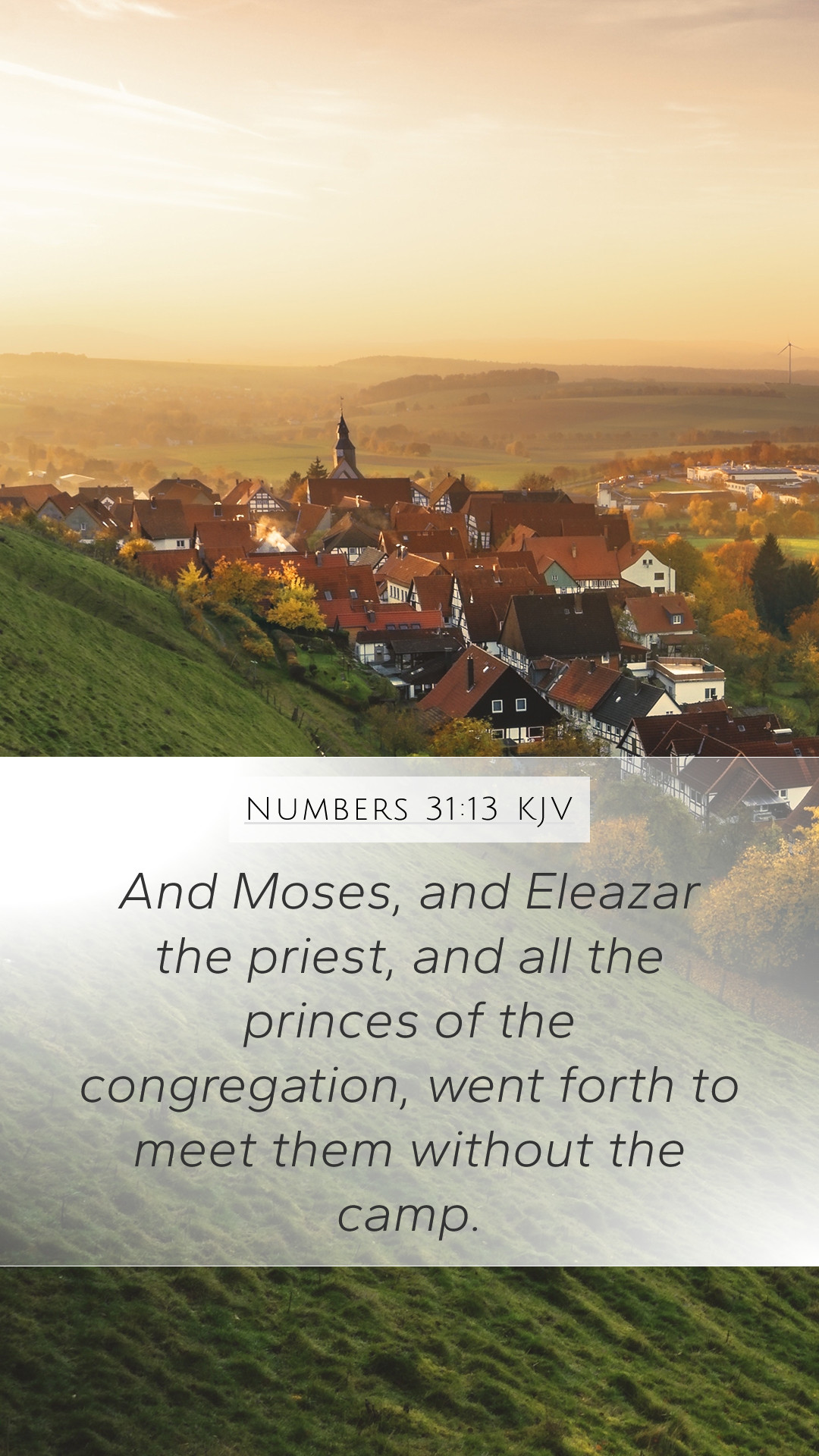Understanding Numbers 31:13
Numbers 31:13 states:
"And Moses and Eleazar the priest and all the leaders of the congregation went to meet them outside the camp."
This verse captures a pivotal moment in the journey of the Israelites as they engage with the aftermath of their battle against the Midianites. It emphasizes the role of leadership and the necessity of guidance in maintaining order within the community of God's people.
Bible Verse Meaning
The meaning of Numbers 31:13 can be understood in several key facets:
-
The Importance of Leadership:
Both Moses and Eleazar are significant figures representing spiritual and civil authority. Their meeting with the soldiers signifies a moment of governance and the importance of leaders in the Israelite community, emphasizing the need for divine guidance in all affairs.
-
Community and Accountability:
The gathering outside the camp illustrates the concept of accountability within the community. Leaders are prioritizing meeting with their people in the aftermath of conflict, highlighting their role in addressing the challenges that arise from warfare.
-
Divine Instruction:
As they approach the soldiers, it underscores the necessity of following divine instructions, as the previous chapters establish that these leaders are acting according to God's commands, ensuring that the community adheres to His will post-battle.
Bible Verse Interpretations
Different biblical commentators have explored the implications of this verse:
-
Matthew Henry:
Henry emphasizes the authority of Moses and Eleazar, reflecting on their responsibility to deal with the aftermath of the battle. He notes that this encounter signifies the necessity of leadership, especially in times of transition and uncertainty.
-
Albert Barnes:
Barnes focuses on the religious and ceremonial aspects of the encounter. He points out that the meeting is not just a social or military one; it is also a sacred moment that reflects the need for adherence to divine law even after victory.
-
Adam Clarke:
Clarke suggests that this verse reveals the seriousness with which the leaders conduct themselves after victory. They approach the situation with reverence and caution, indicating the importance of reflecting on God’s instructions and the moral implications of their actions.
Bible Study Insights
When studying this verse, consider the following aspects:
-
The Role of Godly Leadership:
Reflect on the characteristics of leaders in your own community and their roles in guiding others spiritually and morally.
-
The Impact of Community on Individual Actions:
Discuss how accountability within a group can influence individual behaviors, and consider how this applies in modern contexts, such as Bible study groups or church committees.
-
Consequences of Conflict:
Explore the implications of warfare in biblical narratives, focusing on how victories are often accompanied by divine ordinances and responsibilities.
Cross References
This verse relates to several other passages in the Bible:
- Exodus 18:13-26 - Moses’ delegation of leadership responsibilities.
- Numbers 20:28 - The transfer of leadership from Moses to Eleazar.
- Joshua 22:30-31 - The unity and leadership of God’s people after conflict.
- 1 Thessalonians 5:12-13 - The importance of respecting and following church leaders.
Conclusion
Numbers 31:13 serves as a poignant reminder of the roles and responsibilities of leaders within faith communities. The biblical exegesis of this verse encourages deeper understanding of the nature of divine authority and the need for accountability.
Through careful study, believers can glean important insights about leadership, community dynamics, and the pursuit of God's will, enhancing their Bible study lessons with practical applications to everyday life.


